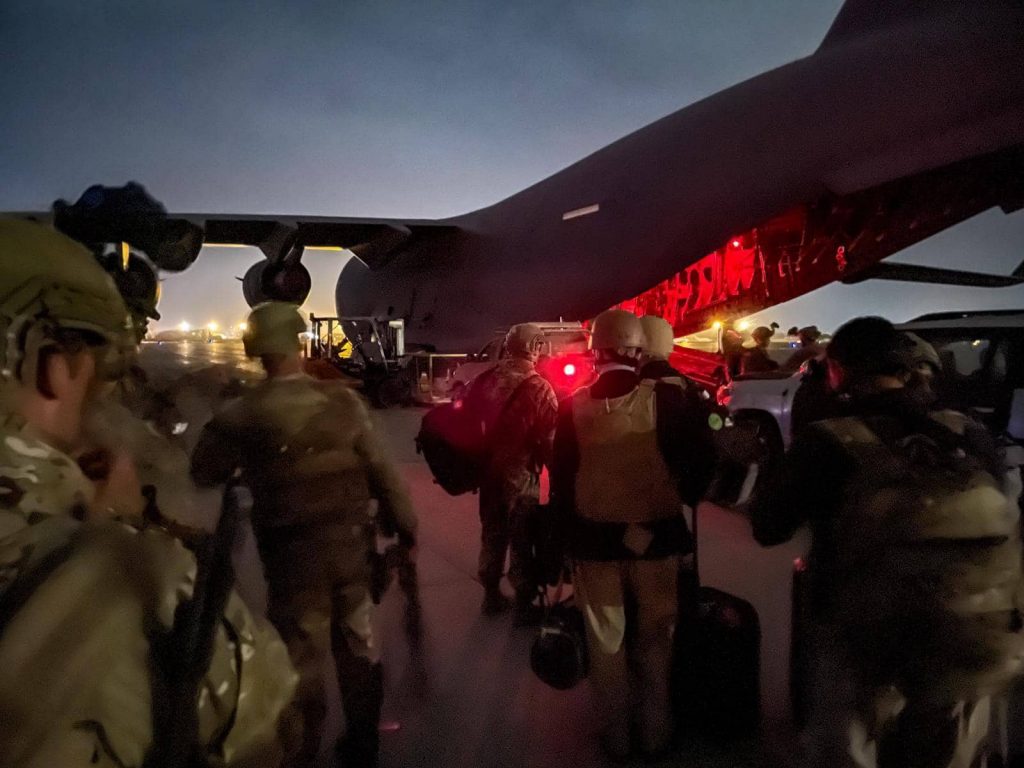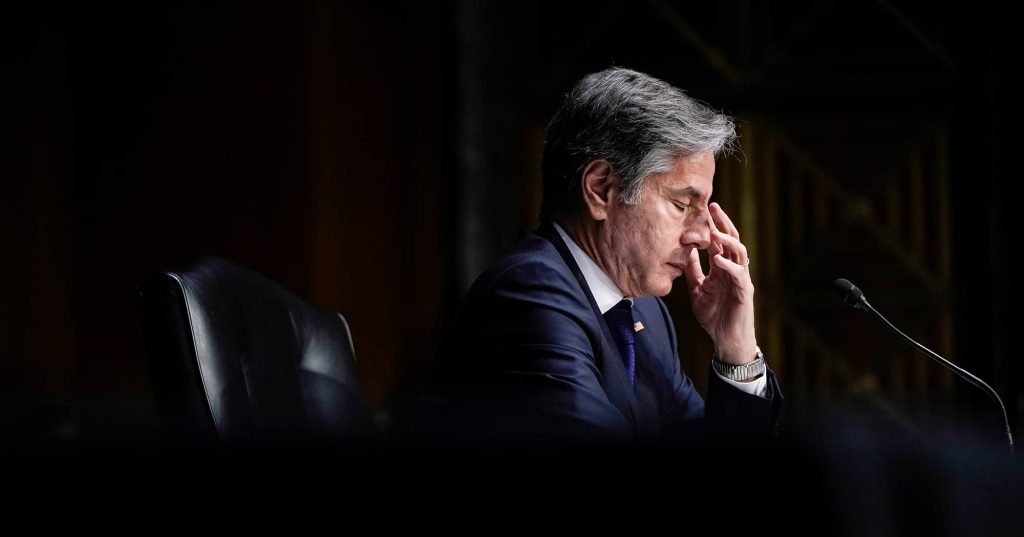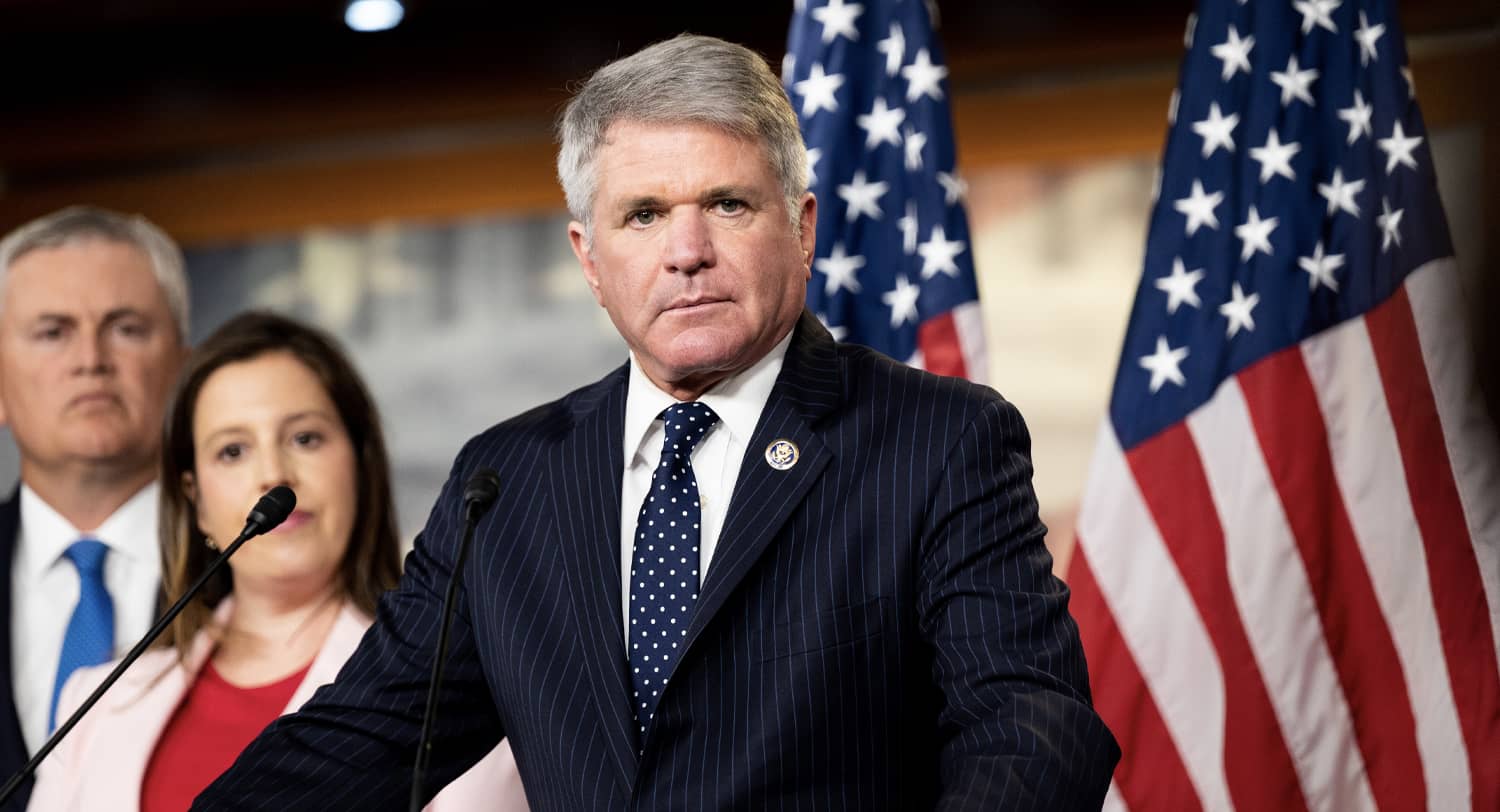Everyone recognizes that America’s withdrawal from Afghanistan in 2021 was a chaotic mess. Even the Biden administration, in a National Security Council document released on April 6, acknowledges the civilian evacuation from Kabul should have been carried out sooner.
House Foreign Affairs Chairman Mike McCaul (Republican of Texas) has been adamant that the administration come clean and adopt a deeper lessons-learned approach to the Afghanistan fiasco. Here is his opening statement at the initial hearing.
“In the spring of 2021 –against the advice of his top generals and the intelligence community – President Biden announced he would unconditionally withdraw all American troops from Afghanistan…I, and many on this committee, received multiple briefings – from the State Department, the Department of Defense, the Intelligence Community, and the difference in their assessments was stark. Both DOD’s and the IC’s outlooks were very grim. While the State Department…consistently painted a rosy picture, ignoring the realities on the ground…Multiple people in the Biden Administration said they’d plan for every contingency. They did not. Instead, they spent the next four months ignoring the realities.”
McCaul is no isolationist. For instance, he supports American assistance to Ukraine, as I saw first-hand when he spoke at the Halifax International Security Forum in November 2022. McCaul has urged the Biden Administration to accelerate its provision of materiel to Ukraine; he has been vocally impatient with its hesitation to provide more lethal weapons to the embattled state. Most recently, and to that end, he and three Republican colleagues wrote to President Biden urging him to release highly lethal cluster munitions to the Ukrainians.
McCaul also strongly supports Israel. He pressed for transferring the American Embassy to Jerusalem. He has consistently voted for funding Israel’s missile defense programs, notably the Iron Dome system. And he has taken a leading role in bipartisan opposition to proposed legislation that would condition aid to Israel because Washington disagrees with some of its policies, notably settlement expansion on the West Bank.
McCaul is not motivated by a partisan desire to bash the Biden Administration. After all, it was the President himself who asserted that “There is going to be no circumstances where you see people being lifted off the roof of an embassy like in Vietnam.” And while it is true that no one was lifted off the embassy in Kabul, the evacuation at Hamid Karzai airport was equally as frenzied.
McCaul heard testimony from a number of eyewitnesses to the evacuation. He also asked the State Department for documentation that he felt underscored his assertions that State had failed to plan adequately for an orderly American departure. McCaul requested some 30 State Department documents. These included a Dissent Channel cable reportedly sent on July 13, 2021, by 23 State Department officials who warned that Kabul was likely to fall to the Taliban as American troops withdrew from Afghanistan. In addition, McCaul also sought the Department’s response to the cable. Finally, the chairman asked for the After-Action Report prepared under Ambassador Daniel Smith, the US Embassy Kabul’s Emergency Action Plan as of January 1, 2021, and the plan’s final revision before the embassy closed.
Perhaps the most important of these three documents was the Dissent Channel cable. This channel enables diplomats to argue a case contrary to the current policy direction of the administration. In their July 2021 cable, the 23 officials issued a grave warning of the disastrous consequences of the Biden administration’s approach to the withdrawal. The State Department response presumably shrugged off their concern. McCaul was certain that the Dissent Cable would demonstrate conclusively that the administration could not claim it was unaware of the consequences of its hasty withdrawal.

McCaul had initially requested these and other documents in August 2021, when he was still the ranking minority member of the Foreign Affairs Committee. After the Republicans retook the House of Representatives in the November 2022 elections and he became chairman, McCaul, with the unanimous bipartisan support of the committee, renewed his request the following January 12. While it no longer stonewalled McCaul as it had in August 2021, the State Department did not comply with the specifics of the committee’s request, instead providing material that, in some cases, was already in the public domain.
At the March 21 hearing, after sending two more letters requesting these documents of the State Department to no avail, McCaul made it clear to the lead witness, Secretary of State Antony Blinken, that he had run out of patience.
McCaul pointed out that in the August 2021 request, the then chairman of the committee Greg Meeks (Democrat of New York) had joined him; this was not a partisan issue. McCaul focused on the events surrounding the suicide bombing attack at the Karzai airport that killed 13 Americans and 60 Afghans. That attack had been the prime motivator of his letters to State. In demanding answers from State, McCaul also pointed out that at a hearing two weeks prior to Blinken’s appearance before the Committee, “we heard testimony, that I was quite frankly unaware of, that we had [the suicide bomber] in our sights. The sniper had him and he could have been taken out, and the threat could have been eliminated and lives could have been saved.”
McCaul also rejected the Department’s assertion, based on its refusal in 1975 to produce a cable on Cyprus to Congress, that to release the Dissent Cable would therefore violate long-standing precedent. Instead, he cited the contrary view of former Ambassador Thomas Boyatt, the author of the 1975 cable, that underscored the importance of congressional oversight.
In response, Blinken pointed that the Department had turned over more than one thousand pages of documentation, but that the Department was withholding the Dissent Cable and the response to that cable because releasing it “could have a chilling effect on the willingness of others to come forward in the future, to express dissenting views on the policies that are being pursued.”
When it became clear that Secretary Blinken was unprepared to budge on release of the requested documents, McCaul issued his first subpoena as chairman and, by mid-May, he began the process of recommending that the House of Representatives hold Blinken in contempt of Congress. State responded by offering to show the key dissent cable and the other documents that McCaul had requested to both McCaul and ranking member Greg Meeks.

That was hardly the end of the matter, however. What State eventually passed to Chairman McCaul was a redacted version of the dissent channel cable. McCaul was not happy. On June 8, he sent yet another letter to the State Department insisting that State comply with all of the document requests and giving Blinken one week to comply, which State finally did for the dissent channel cable.
Perhaps the Secretary wished to put the issue behind him as he was about to depart for his crucial trip to China. Moreover, as a former long-time congressional staff aide, Blinken fully appreciated the gravity of McCaul’s threat. It is not clear, however, whether McCaul received the other documents he requested. The tug-of-war between the Chairman and the Secretary thus may not be completely over.
There are two primary reasons why the administration, and the State Department in particular, objected to McCaul’s request. First, there is long-standing institutional tension between any administration and the Congress over the extent and scope of congressional oversight. Even when a matter is not partisan, the executive branch seeks to shield its internal deliberations. This general concern is magnified in the case of the State Department dissent channel since it was created to allow diplomats to express contrary views without repercussions to their careers. Such cables are kept out of the public to protect both the drafters and their arguments. Second, with respect to Afghanistan, the White House wanted the entire episode put behind it, to be treated as“yesterday’s news” in the hopes that the public would quickly forget.
McCaul is not ready to forget. He wants to force the administration to confront its mistakes and absorb the lessons to be learned from what took place. The Biden Administration has essentially repeated mistakes made in the American departure from Saigon in April 1975 as the city was falling to North Vietnamese forces. McCaul does not want this or any future administration to allow for a similar chaotic departure should in future Americans once again find that they must evacuate a combat zone.
One can only draw lessons from history if one knows the history. It is for that reason McCaul, together with his Republican and Democratic colleagues, are committed to seeking the documentation from which those lessons can be derived. America failed to absorb the lessons of Saigon; McCaul is determined to ensure that the lessons of Kabul do not meet the same fate.

